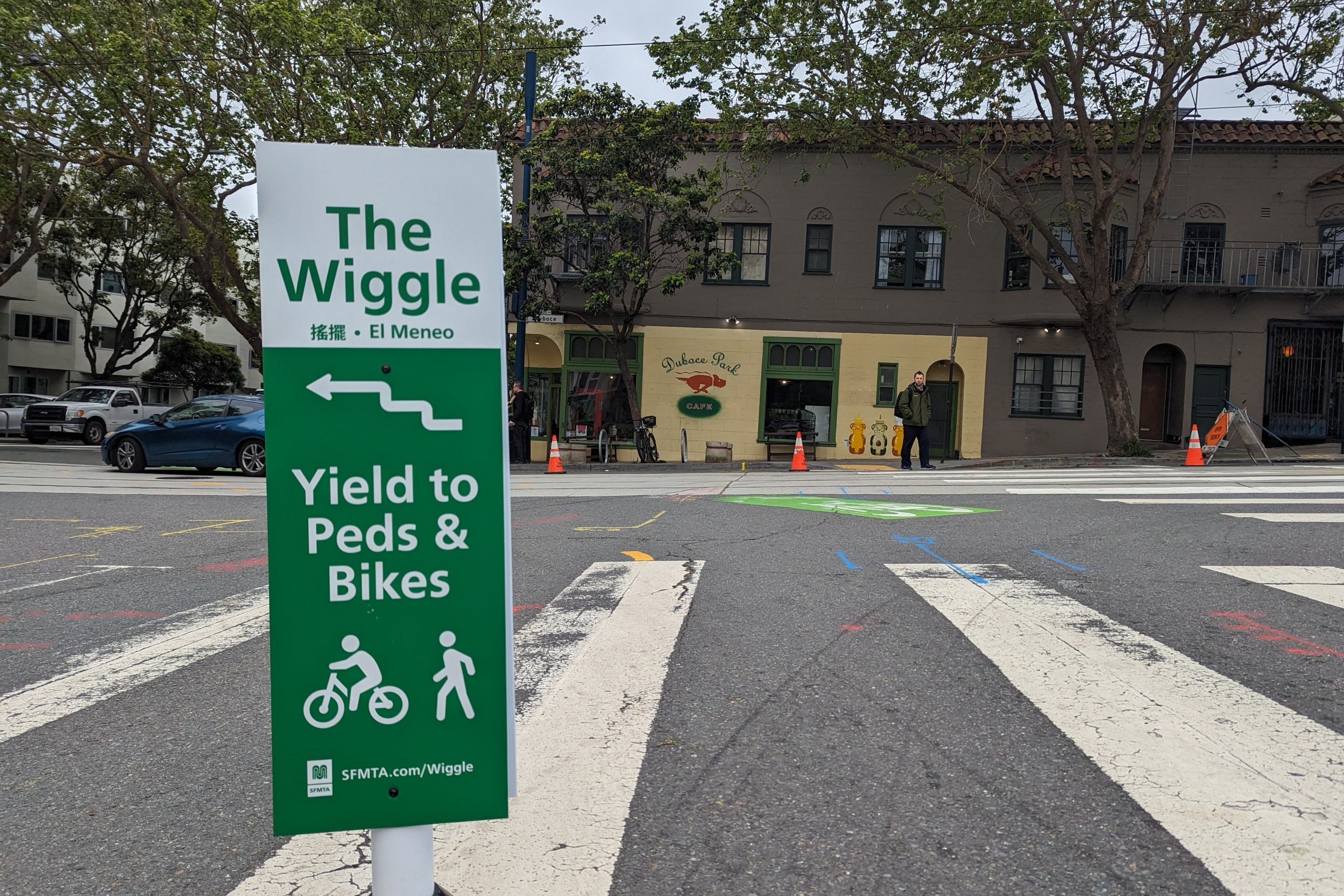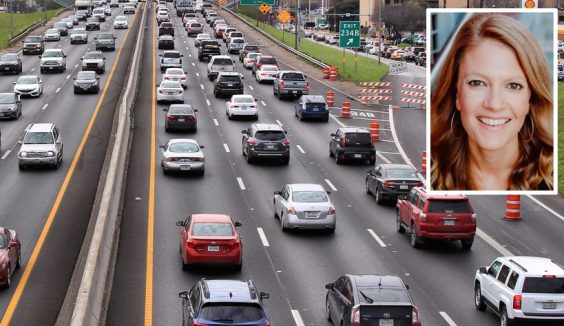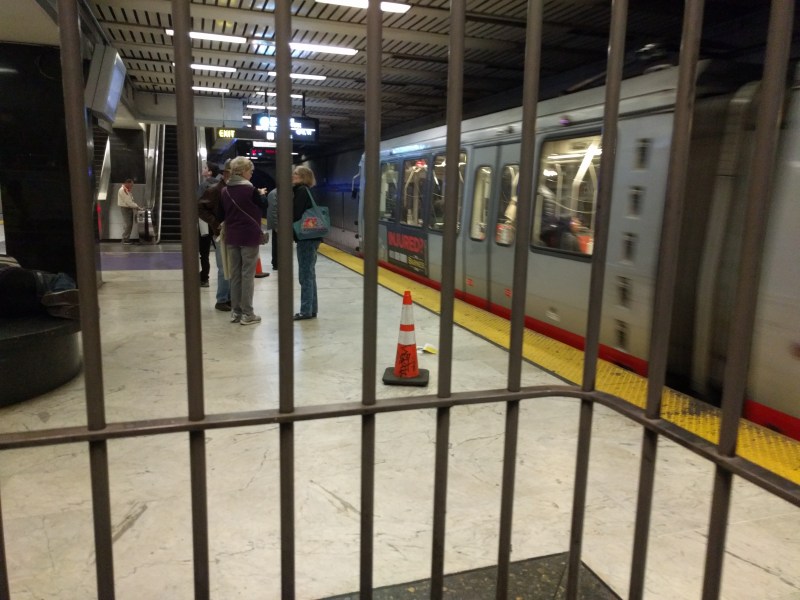When parking expert Donald Shoup publicized his principle several years ago that cities should manage the demand for curbside parking by adjusting the cost so that there was always an available space, he probably didn't think a large city like San Francisco would move from theory to practice so quickly, nor that the city's SFPark pilot program would be as sophisticated as it is.
The San Francisco Metropolitan Transportation Agency (SFMTA), which sets parking policy and runs Muni, has completed the installation of 8,255 vehicle sensors in the SFPark pilot areas, sensors that allow the agency to track vehicle parking patterns in real-time with unprecedented clarity.
"The parking sensors are at the heart of SFPark. For the
first time, we're going to have a really exciting data set about what's
really happening on the street," said Jay Primus, SFPark project manager for the SFMTA. "If you were to ask us now what
parking turnover is, or what availability is, or any other parking
metric is, we don't really know."
The sensors are made by Streetline Inc, a vendor with contracts in San
Francisco, Los Angeles and several other cities. Surface-mounted sensors resemble the Bott's dots between lanes on a freeway, while the embedded sensors are flush with the pavement. The sensors detect ferrous
metal within a five-foot radius and therefore can detect both stationary
and moving vehicles within that range. They will also communicate wirelessly with new parking meters, which will be installed within
the next month or two.
Primus said that prior to installing the vehicle sensors, the data the agency had on parking patterns was limited by how they were collected: The agency used to send interns out with clipboards to observe parking, a method that could not accurately account for how drivers park on more than a few block faces and certainly couldn't give a comprehensive real-time picture to help managers improve parking policies.
The SFPark trial will begin later this summer and run for two years at
6,000 curbside spaces
and 12,250 garage spaces in seven commercial areas around the city.
Primus noted that other cities like Redwood City, Old Pasadena and New York City have already experimented with Shoup's
demand-responsive parking, but none of them has the benefit of the
extensive sensor system, which will create one of the most robust
parking data sets in the world.
One of the primary goals of SFPark, according to Primus, is to better inform drivers where there are available parking spaces so they spend less time cruising to find an open spot and the sensors are integral to this process.
"We can make that data available in real time to drivers before or during their trip. It should make for more informed travel choices," said Primus. "People can decide whether they want to drive in. If they do, they get matched up with a parking spot more quickly and therefore get off the road faster and deliver the kinds of benefits we're looking for for the overall transportation system, even for people who aren't in cars."








